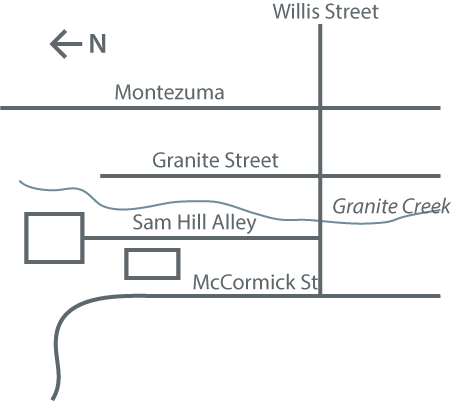In January 2003 I was 26, yet I seemed to be going through a troubled adolescence that would never end. Down on my luck and homeless in Tallahassee, FL, one evening I was standing in line to receive a meal and was talking about life with an artist friend of mine. I made some point about the futility of existence and a voice behind me intoned, “You should read The Brothers Karamazov by Dostoevsky.”As most people in that line weren’t exactly literary-minded, this statement came as a mild shock. I turned around and saw a lanky man in his late 50s in a floppy boonie hat carrying nothing but an empty metal pail. A bright smile beamed on his weather-beaten face. My first impression of Mike White was that he was either crazy, a holy saint, or some combination of the two.
We began to talk about religion and self-sacrifice and soon became inseparable companions. Mike had patterned his life after Jesus and St. Francis: He had nothing, wanted nothing, never complained, and gave everything. I soon learned he had devoted a great deal of energy to something called the Catholic Worker Movement, and he loved to tell stories about Dorothy Day, Peter Maurin and others he had know in New York City. His vision of the Church was one of the poor and oppressed living in harmony and dignity together with Jesus Christ as high priest. For what he called the “slow church” of wealth and complacency he had only a gentle mockery: He refused to go to the local cathedral or avail himself of their services. When we went to church he insisted on going out of our way to a church that served a Hispanic congregation of mostly agricultural workers. His solidarity with the poor permanently changed my outlook on faith and society.
Mike told me a little about his life. He came from a Pensacola family who had made a fortune tailoring uniforms for the naval base. He had wanted to attend Loyola University in New Orleans, but his father wouldn’t pay for it so he attended the University of Florida instead. When he was about 30, in 1974, he inherited $30,000 and used it to drive around the country doing good deeds and helping the needy. Soon he was homeless, and at that point he formally decided to adopt the mendicant lifestyle. He had two brothers who shunned him for the most part, but would occasionally give him a helping hand. One was a lawyer and the other was a professor of architecture, both in Tallahassee.
Just as mysteriously as he had appeared in my life, one day I saw Mike no more; he had given no warning he was going to depart. The seed, however, was planted. I made arrangements to visit the original Catholic Worker in New York City and the Peter Maurin Farm upstate in Marlboro. When I arrived in July, all the old-timers remembered Mike well. He showed up every morning to help serve breakfast and chat with the clients, but he never accepted any offers of shelter, even in the coldest weather. They said he lived in a cardboard box in the alley and were afraid he would freeze to death.
How someone could be so dedicated to a solitary life of service to his God and so thoroughly empty himself of ego staggered my mind. I then realized why he had carried around that empty pail. The last time I ever saw Mike White was a complete coincidence. In 2010 I was living in Pensacola, and one day driving down Scenic Highway into downtown I saw the unmistakable lanky figure in the boonie hat waiting to cross the street. I did a double take, but the traffic was too heavy to stop and turn around.
May the Lord bless that stubborn man of the people, wherever he may be.
– Brian McNeil

